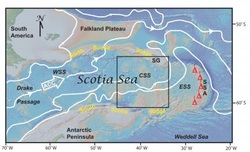
Whatcom Watchdog reports that it just added a new Bicycle Pedestrian Advisory Committee page, and also that this committee has three slots open. Step up, folks! Things like this can and will affect your life in profound ways.
After all, who would have thought that the idle murmurs five years ago about something called a "reconveyance" would have turned into an 8000+ acre parks and rec empire, decimating an industry, de-funding a school and a county revenue stream, all on speculation of millions in tourism? WE didn't. Well, WE didn't exist then, but it's a big part of the reason WE exist now!
You should listen to the audio recording of the Bike/Ped meeting, and see how procedure is meticulously followed (not). Really, we need some principled committee members. If you can spare the time, please volunteer.








 RSS Feed
RSS Feed
